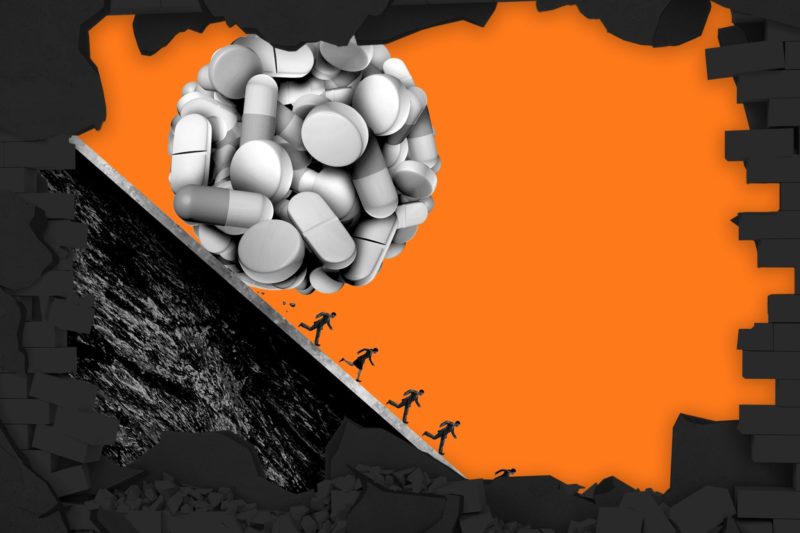The Breach: What Everyone Gets Wrong About the Opioid Crisis
Sanho Tree returns to discuss the bad assumptions underpinning the Drug Enforcement Agency's approach to the opioid crisis and explain the latest alarming news from the Philippines.

Subscribe to The Breach in Apple Podcasts, Google Play, Stitcher, or Soundcloud.
President Donald Trump is expected to declare a national state of emergency for opioids this week. Sanho Tree of the Institute for Policy Studies joins host Lindsay Beyerstein to discuss the latest news on the overdose epidemic, including a blockbuster Washington Post story that led Trump’s pick to head the Drug Enforcement Agency to withdraw his name from consideration. The episode also delves into the root causes of opioid abuse—from under-regulation of drug distribution companies to social disintegration—as well as the alarming new “drug war” developments in the Philippines.
Recommended Reading:
John Kelly’s Lies About Frederica Wilson Are Part of a Pattern of Not Believing Black Women, by Shaun King for the Intercept, October 2017
An edited excerpt:
Lindsay: I feel like this story might be a chance to change the narrative around how the opioid addiction crisis spread. People have this stereotype. Even the media doing interviews with the journalists who did the exposé seem to be assuming that it was well-meaning pain doctors addicting legitimate pain patients one at a time, and that’s how we got so many addicts. This story seems to shed light on a whole new aspect of the problem that hasn’t got nearly as much media play, which is there is and was diversion on an industrial scale, with these drugs going straight to the black market.
Sanho: Yes, and they knew exactly which regions they were going after, as well. It’s not to say that every patient who was prescribed lots of opioids eventually went onto the black market. If you’re a parish priest, or if you’re a professor or whoever, they may have developed a dependence, but it doesn’t mean they necessarily went to heroin, the street drugs. But those people who did have connections to that world—that is to say they knew which phone calls to make because they associated with people who were in those circles—that was a much easier jump to make, and so that’s what they did.
I think we need to look at the regions where these things were happening, as well. There is a whole field called the depth of despair. I think there’s an interesting coincidence, not necessarily correlation but striking coincidence, of where the opioid crisis is hitting the hardest and where Donald Trump did very well electorally. I think a lot of opioids are a very useful way to numb the pain of your existence. If you don’t believe that tomorrow is going to be a better day, if you believe that your best days are behind you, a lot of people turn inwards.

